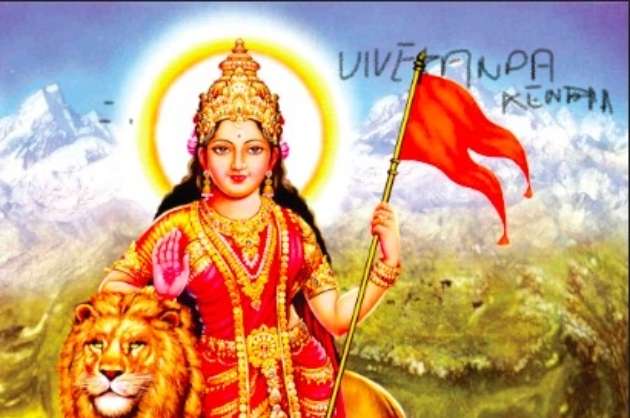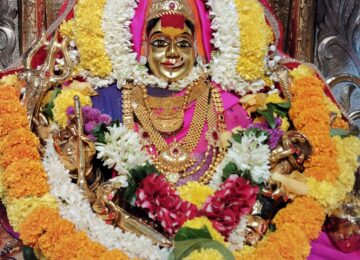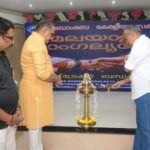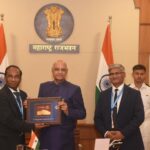Anupama Nair
In the last part I spoke about the establishment of the kingdom of Mewar
On 21 April 1526, the Babur invaded India for the fifth time and defeated Ibrahim Lodhi in the First Battle of Panipat and executed him. After the battle, Sanga unified several Rajput clans for the first time since Prithvi Raj Chauhan, and built an army of 100,000 Rajput soldiers and proceeded to Agra. The Mughals managed to capture the Bayana Fort and a major clash took place in Bayana in 1527 in which Mughal forces led by Chin Timur Khan were defeated by Rajput forces led by Prithvi Raj Kachwaha and later by Rana Sanga himself. The defeat was the last of Rana Sanga success.
The Mughals were terrified by Rajput valor and asked Babur to leave for Kabul. This is the main difference between Indian warriors and the foreigners from Muhammad Ghori as we fight till the last breath, while these cowards flee at the time of danger.
In the battle fought at Khanwa, the Mughal were victorious due to their cannons, matchlocks and other firearms. Sanga was struck by an arrow in middle of the battle and was removed from the battle by his brother-in law Prithvi Raj Kachwaha along with prince Maldev Rathore. Following his victory, Babur ordered a tower of enemy skulls to be erected, a practice followed by his ancestor Taimur the Lame, against his adversaries, irrespective of their religious beliefs. Historians state “the objective of constructing a tower of skulls was not just to record a great victory, but also to terrorize opponents. Earlier, the same tactic had been used by Babur against the Afghans. I do not know what to say about such cruelty as they are glorified here. As I said before an actor couple named their son Taimur, as if there was shortage of names in the world, and we have a street named after Babur
In this battle Sanga was also betrayed by Silhadi who soon began to fight for Babur. After regaining consciousness, he took an oath to never return to Chittor till he defeated Babur and conquered Delhi. He also stopped wearing a turban and used to wrap a cloth over his head. While he was preparing to wage another war against Babur, he was poisoned by his own nobles who did not want another battle. He died in Kalpi in 1528, and was succeeded by his son Ratan Singh II.
Many historians falsely claim, Babur attacked India after he was invited by Sanga to help him against Ibrahim Lodi. It was refuted by some other historians and it is true for many reasons. The first reason is that the book Baburnama claimed Daulat Khan Lodi, the Governor of Punjab invited Babur to India as he wanted to take advantage of the weak leadership in the Lodi dynasty and usurp power with the help of Babur’s army. The second reason is that, it was Babur himself, who had extended the invitation to Rana Sanga in quest of help. Babur had already decided to attack India and asked Sanga for a helping hand to defeat the common enemy – Ibrahim Lodi.
The third reason is Rana Sanga was victorious in most battles and the Mewar confederacy was at the height of its glory, defeating the Sultan of Gujarat at that time. This was perhaps the last time many Rajput kings united under the leadership of Rana Sanga. The Rajputs had already defeated Ibrahim Lodi in Khatoli and Dholpur and there is no reason for them to seek the help of an outsider, to take on an enemy which had already been defeated. Then, if Rana Sanga had extended invitation to Babur to help defeat Ibrahim Lodi, why didn’t he join Babur against Lodi? Why did Rana Sanga fight a battle against Babur at Bayana?
The last and the most important point is Babur didn’t need any invitation as he had already decided to invade India. In fact, Babur first attacked Punjab in 1519, but was unsuccessful. Our history books unfortunately give importance to the Battle of Panipat, even after knowing that the Lodi empire was disintegrating much before this. In 1526 there were two forces who could stake claim to the throne of Delhi — Mewar under Rana Sanga and the Mughals. Therefore, it was the battle of Khanwa that sealed the fate of India rather than the battle of Panipat. If Rana Sanga would have won we would have “laid the foundations of a Hindu empire”, stated some scholars, instead the Mughal Empire was established.
Rana Sanga was truly a great son of Bharat Ma indeed.




























